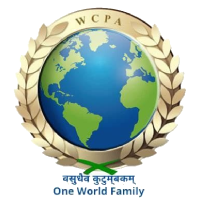WLA 16. World Hydrocarbon Resource Act
World Hydrocarbon Resource Act
Short title: Hydrocarbon Resources
Whereas the world’s natural hydrocarbon resources are not a means of production, created by enterprise, but are instead a pre-existing natural resource of the Earth, and the common heritage of humanity;
Whereas, most geologists agree that in fact, there is not a glut of hydrocarbon resources, but that these resources will be destroyed within a generation if these hydrocarbons are used as fuels, and long-term supply is actually short now;
Whereas, most meteorologists agree that if the remaining hydrocarbon resources are burned, rather than using them for durable plastics and lubricants for generations to come, that the Earth’s climate will suffer further irreparable damage;
Whereas, artificial subsidies of hydrocarbons for the use of combustion is a major excuse for the world’s centrally planned military industry, and causes terrific strife among nations; and is a major factor contributing to war on Earth; and
Whereas artificial subsidies of hydrocarbons for the use of combustion creates an artificially high non-market cost for the development of solar, wind, hydrogen and other Earth-friendly forms of energy technology;
Therefore, this Sixth Session of the provisional World Parliament hereby mundializes all as yet unmined natural hydrocarbon resources on Earth, creating a World Hydrocarbon Reserve Board for the proper regulation of the use of this common heritage of humanity.
Accountability
- The World Hydrocarbon Reserve Board is responsible to the World Executive.
Minister of World Resources
- The World Parliament shall elect a Minister of World Resources to head the World Hydrocarbon Reserve Board. For clarification, the Minister of Energy shall not head the World Hydrocarbon Reserve Board, because the world hydrocarbons are not considered to be a viable fuel available for unregulated combustion by the world public, but instead are primarily a source for durable, recyclable plastics and lubricants for now and for generations to come.
- The Minister of World Resources shall nominate a qualified Senior Administrator to assist the Minister and supervise the detailed work of the Board.
- The Minister of World Resources shall submit schedules of recommended licensing requirements to the World Parliament, so that licensing in the mining, processing, distribution, or combustion of hydrocarbon resources can be standardized by the World Parliament.
- The Minister of World Resources is responsible for assessing whether agencies are qualified in applying for licenses to mine, process, distribute or combust hydrocarbon resources.
- The Minister of World Resources is responsible for issuing licenses in such cases that the licensee is determined as qualified to meet the licensing requirements.
- The Minister of World Resources is responsible for requiring persons to first obtain a license to mine, process, distribute or combust hydrocarbon resources.
- The Minister of World Resources may initiate legal proceedings against any person who mines, processes, distributes or combusts hydrocarbon resources without a valid license.
- The Minister of Resources shall provide Board recommended tax, license fee and fine schedules to the World Parliament, together with such separate adjustments as are recommended by the Minister of Resources.
- From penalty schedules authorized by the World Parliament, the Minister of World Resources may assess penalties, suspend or revoke licenses to mine, process, distribute or combust hydrocarbon resources.
- From tax schedules authorized by the World Parliament, the Minister of World Resources may assess taxes to mine, process, distribute or combust hydrocarbon resources.
- The Minister of World Resources is responsible for using the fine schedules in the determination of fines or other penalties in specific cases, including suspension or revocation of licenses. In cases where agencies are not responsive to fines, to license suspensions or revocations, the Minister of World Resources may make reports to the Office of World Attorneys General for the effective enforcement of the Resource Department Decisions. Also, the Minister of World Resources may initiate suit in an appropriate bench of the World Court, when suit is appropriate.
Advisory Board
- The World Hydrocarbon Reserve Board shall have an Advisory Board, composed of members who are signatories to the Earth Constitution. The function of the Advisory Board is to determine total costs of hydrocarbon development, refinement, distribution, combustion and other uses. In determining costs, the Advisory Board shall consider damage to the environment caused by development and distribution, generation of greenhouse gases caused by combustion, loss of natural resource stock, disruption to human communities, and other concerns related to the cost of the hydrocarbon development and use. The World Hydrocarbon Reserve Board is authorized to recommend hydrocarbon tax schedules to the World Parliament. The World Hydrocarbon Reserve Board is authorized to recommend schedules for fines or other penalties for the misuse of world hydrocarbon reserves. The World Hydrocarbon Reserve Board is authorized to recommend base prices for various grades and types of hydrocarbon, in crude or processed forms, taking into consideration the costs to the environment, distribution costs, resource depletion and suspected end use. Combustive end uses may be assessed a higher base price than non-combustive end uses. Non-durable, non-recyclable plastics may be assessed a higher base price than durable or recyclable plastics. Vinyl and polythene plastics may be assessed a higher base price than less destructive plastics.
- The Minister of World Resources shall preside meetings of the Advisory Board. In the event the Minister of World Resources cannot preside, the Minister shall appoint the Senior Administrator to preside temporarily.
Composition of the Advisory Board
- To begin, the Advisory Board is composed of members from the following sources:
- The Minister of World Resources, The Senior Administrator of World Resources,
- Seven Members of the World Parliament, elected by the Parliament for terms of two years,
- Membership from participating hydrocarbon mining and distribution firms, the number of votes based on the proportion of overall product and service rendered, together with adherence to development policy as determined by the Minister of Resources.
- Members from each participating oil exporting country to ratify the Earth Constitution, the number of votes may be based on the quantity of verified reserves under the respective territory of the country, as determined by the Minister of Resources.
- One Member from each of the respective ministerial agencies of the World Administration, and the Integrative Complex, as described by the Earth Constitution;
- The listed world government agencies may designate a Board Member each without any requirement of Board Approval:
- World Economic Development Organization
- World Oceans and Seabeds Authority
- Emergency Earth Rescue Administration
- World Government Funding Corporation
- Global Ministry of Environment
- World Hydrogen Energy System Authority
- Earth Financial Credit Corporation
- Agency for Technological and Environmental Assessment
- Agency for Research and Planning
- Institute on Governmental Procedures and World Problems
- Ministry of Resources (upon formation)
- Ministry of Multinational Corporations (upon formation)
- Other Agencies, Ministries and Departments of the World Government, as listed in Articles 7 and 8 of the Earth Constitution (upon formation)
- The following listed agencies may nominate a member each upon the respective agency’s ratification of the Earth Constitution. Nominees must personally ratify the Earth Constitution to be eligible to serve on the Advisory Board. Each nominee is subject to initial simple majority approval by the Entire Board:
- Organization of Petroleum Exporting Countries (OPEC)
- World Trade Organization (WTO)
- United Nations Industrial Development Organization (UNIDO)
- World Meteorological Organization (WMO)
- International Monetary Fund (IMF)
- Multilateral Investment Guarantee Agency (MIGA)
- International Finance Corporation (IFC)
- International Development Association (IDA)
- World Bank Group (WBG)
- International Labor Organization (ILO)
- World Health Organization (WHO)
- Federal Reserve Board
- The Minister of Resources may suspend an Advisory Board Member, if the agency of the Member is under suspension of license. The Minister of Resources shall expel an Advisory Board Member, if the agency of the Member is under revocation of license.
- Otherwise, Advisory Board Members are subject to expulsion from the Board, based upon a two-thirds majority vote of the world government agency members of the Advisory Board. The respective agency may appoint a new Advisory Board Member, unless the Agency is under suspension or revocation of license.
Licensees
- The Minister of World Resources may require a license by the following entities: nations, corporations or other persons that prospect, mine, refine, process, transport, wholesale or retail world hydrocarbon resources.
- Entities that wish to obtain a license must fill out the respective forms and pay any respective fee for their particular license.
- Entities that wish to obtain a license must sign personal and organizational support of the Earth Constitution in the license form.
Authority of License
- Although license as mining rights were customarily assigned by national governments, it is evident that the national governments of the world have failed as stewards of the world’s hydrocarbon resources, and that likewise, international agencies have also failed to establish a good regulatory function for this precious natural resource of Earth. Since this Act mundializes the hydrocarbon resources worldwide, the Act shifts the responsibility of license from the national government to the Earth Federation. Therefore, any former licensing agreements or national level mining rights are not recognized by the Earth Federation, unless the licensee seeks, obtains and maintains a license through the Ministry of World Resources.
* * * * * * * * * *
Adopted unanimously, 5:10 p.m., 26 March 2003, Bangkok, Thailand, by sixth session of provisional World Parliament, convened in conformance with Article 19 of the Constitution for the Federation of Earth.
Attested : Eugenia Almand, JD, Secretary
Provisional World Parliament

